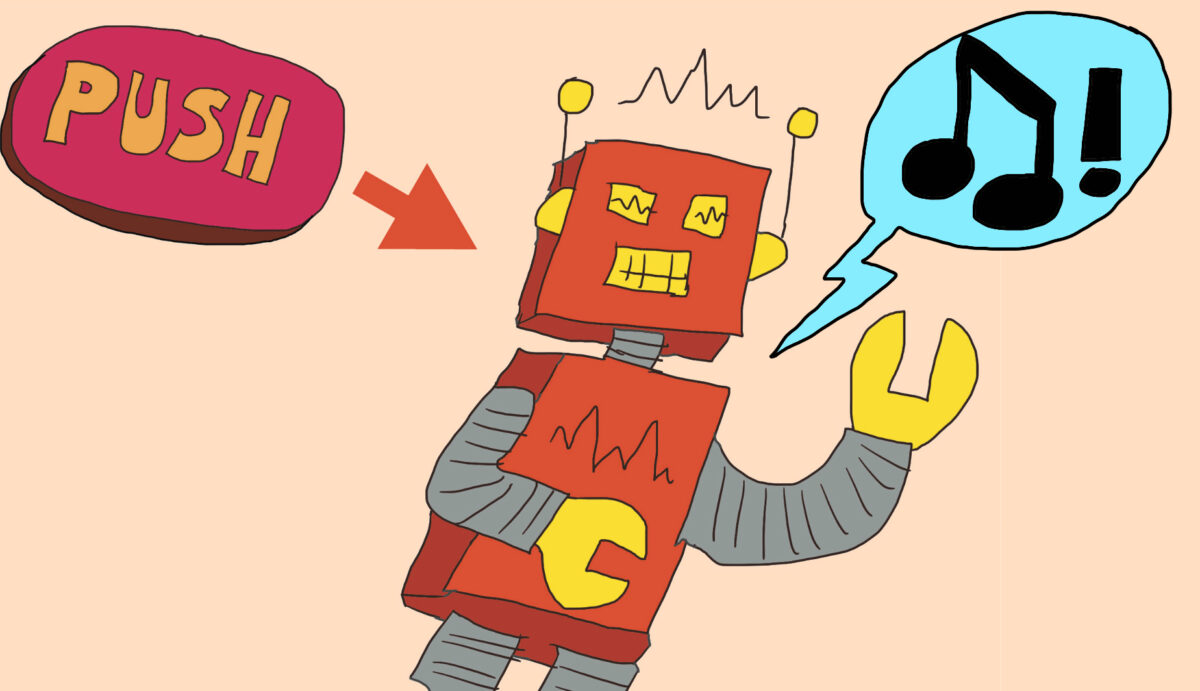He followed up to ask:
What if the music was created by a machine? The specifics of the track changes based on the time you set for the audio. So the music you end up using is compiled by the machine and not a person. Does that make a difference?
Once again, I am not a lawyer and this is not legal advice.
Software is copyright protected (the code is considered ‘writing’ in the same way that a novel is writing (you can’t copyright a process, but you can copyright how you describe it, which is kind of what code is considered)). So there are two possibilities here:
- The software is creating the music from scratch: it’s programmed with an understanding of scales, chords and instruments. In this case, copyright in what it produces might be the copyright of the software author (see further down); or
- The software is a lot simpler and is merely truncating or time-shifting music “stems,” which were written by a human, and all the software is doing is looping/speeding up/slowing down (chopping and screwing, as the kids say). In which case I think the copyright would reside with the music author.
I suspect Photos is the latter, and copyright in this instance is with whoever wrote the tunes that Photos is using, regardless of how Photos is messing with the music when you’re playing with it.
Making things worse, music copyright also breaks down into author, performer, and performance copyright elements; I’m really talking about the authorship question here, but performance rights would also depend on whether this ia a modified piece of existing performed music (it’s chopping and screwing an MP3) or if the music is generated by the software. Music copyright is just the worst.
Pertinent to Ingenuity Labs, though: there’s no AI/art jurisprudence in Canada, but literally a few weeks ago the U.S. Copyright Review Board refused to grant copyright to a “true” AI-generated piece of visual art: Paradise Lost: Art Created by AI Is Ineligible for Copyright Protection | McDermott Will & Emery – JDSupra. The US is not Canada, but it’s a common law jurisdiction like Canada and a very influential one, so barring any radical departures elsewhere in the Commonwealth it would likely be what courts here would hew to.
This is where I don’t know as much as I could — I don’t know what distinguishes an “AI” from “normal” software. The decision here is based on there being no human involved in the actual creation; humans being assisted by AI in the creation of works would still hold copyright in those works.
So even in the first example above (a piece of software generating something), I don’t know at what point it’s an “AI”, or when it’s “just software” and the software author would hold copyright.
I also don’t know where the threshold of “AI” and “human assisted” is: depending on the thought and complexity you have to put into the AI for it to generate something, you might cross a legal barrier where on one side you’re a human that’s putting enough creative complexity into the system that you’re still the author; on the other side it’s just the AI at work.
Per the US decision above, a human has to be at the origin of the work for there to be copyright in it: the AI can’t be an author (nor can an AI perform ‘work for hire’ (which is again not a thing in Canada, exactly) since it is not capable of meaningfully entering a contract).
While this is all fun to unpack, ultimately the prior thing holds — if there’s no specific term-of-service language granting you a non-exclusive license to use the asset, it’s just not safe to use.
